Top Marks and the SMH
The SMH love redundancy. But they tend not to acknowledge it until most people have stopped reading.
Today the Sydney Morning Herald published an article ‘The majority of HSC students get top marks in these subjects - if their school offers them’
In it, they talk about the high proportions of students who achieve in the top two bands, particularly in extension and creative arts subjects, then talk about students at schools that aren’t offering all those subjects within the school.
Even though the article goes on to acknowledge that every expert they spoke to asserted that you can’t just look at the proportions of top two band students and make too much of it, they still published the story where the first three quarters seems to me to be incongruous with the last.
Anyway, I want to interrogate it a bit.
English Extension 1
English Extension 1 is the most talked about subject here.
In English Extension 1, about 96% of students achieved a Band E3 or E4 in 2024.
The proportion of students achieveing an E4, especially, in English Extension 1 has been steadily increasing. In 2007, 22% of students achieved an E4. That has now risen to 42% of students. At the same time, the proportion of students studying English Extension 1 has dropped from 9.5% of HSC students in 2007 to just 5.1% in 2024.
Does that mean that all the higher achieving students have continued to choose the course and the lower achievers have dropped out? But the best way to check, I think, is to look at how Extension 1 Bands have scaled over the same time. When the proportions of students achieving certain bands changes, there are two possible causes. Changing cohorts or changing standards.
Here’s how English Extension 1 has scaled from 2007 to now.
Each dot here represents an HSC score from 0-50 and its colour shows the band. Red dots are Band E1s, yellows are E2s and E3s and the blue dots are E4 scores. How far a dot is to the right is what that HSC score is worth to a student’s ATAR. So in 2024, an HSC score of 45/50, the lowest score you can achieve and still reach an E4 was, by my estimates, worth about 92.7 to a student’s ATAR.
I think that’s quite low for an E4 in an Extension subject. But it’s especially low for English. I tend to think that an E4 in a subject should be worth at least as much to a student’s ATAR as a Band 6 in the base 2 unit subjects of that faculty. But in English, this is not the case.
A low E4 in English Extension 1 is worth significantly less to your ATAR than a low Band 6 in Advanced. Now, that’s actually fine. I don’t like it, but it’s fine. That’s because, in the HSC, the system is set up such that every subject gets to define academic achievement on its own terms according to its own descriptors. The only exception to that is shown here, with English Advanced, Standard and Studies Exam being marked by NESA at the same standard and being forced to scale the same by UAC. But every other subject is unique to itself.
Extension Scaling - Not Even Similar
Here are the proportions of band achievement in non-language extension subjects in 2024.
Here’s how all the non-language extension courses in the HSC scaled in 2024.
What those E3 or E4 scores mean to student ATARs varies significantly. As it does across all subjects in the HSC. And that, in and of itself, isn’t a problem. Any extension subject has the potential to get a student to a scaled score of 50/50 in the HSC. But the HSC scores required to get to the same scaled scores will be different. This isn’t a bug, it’s a feature. At the NESA marking, judging and aligning level, how marks are distributed within a subject are determined by that subject alone. No one subject is subject to another in this regard.
Economics - Proof of…
The article talks about Economics as a high scaling subject.
There’s a sense in which that’s true. In Economics, the highest scaled score achieved each year is 50/50. You can’t get more than that. There is a decent proportion of students achieving Band 6 scores each year and those Band 6 scores are worth a lot to a student’s ATAR.
14% of Ecoomics students in 2024 achieved a Band 6.
If we look at what a Band 6 in Economics is worth to your ATAR compared to other HSIE subjects, it’s a lot. in 2024 an HSC score of 90 was worth, by my estimates, an ATAR contribution of about 96.2. That is, according to UAC, a student who achieved 90 in Economics was, in Economics, achieving at a 96 ATAR level. Or, if everyone in NSW was in Economics (all 100,000 odd students who began Year 7 with the cohort), about 4% of students would achieve a Band 6. That’s a high standard.
But does that mean that Economics scales better than Business Studies, Economics, Legal Studies, Society & Culture and the like? No. It’s not that simple.
Here is how often HSIE subjects count toward student ATARs when they have more than 10 units.
Economics is the HSIE subject that has the best reputation of scaling. But, when students who study Economics have more than 10 units, they’re less likely to have it count toward their ATAR than all the subject here except Aboriginal Studies. That is, for more subjects than all other HSIE subjects except one, across the state, Economics is more likely than the others to be the lowest contributor or not a contributor to a student’s ATAR.
Is that what we’d expect of a ‘better’ scaling subject? I’d suggest not.
Economics is great. For interested students who are ready for the challenges it presents. And for students who are neither of those things, it’s not great.
Location, Location, Location
The article makes a point about opportunities presented to students in regional and remote locations. I accept that this is a problem, although I doubt there are many schools not making sure students are well aware that there are distance options available to them.
I think there are about 770 schools offering the HSC. In 2024 there were 3,782 students who completed English Extension 1. That’s five students per school, if it were evenly distributed, which it’s not, of course.
I don’t work with many tiny schools, but I do work with a lot of schools outside of Sydney and I can count on one hand the number who don’t offer and run English Extension 1, even for just 1-5 students. The same is true for Maths Extension courses. Science and History Extension are run less frequently and Music Extension is quite rare outside of Sydney. But that all makes sense.
Opportunities outside of cities is something worth wrestling with. It matters. But I’m unconvinced that not offering Economics is causing the ATAR downfall of schools outside of Sydney like it’s being presented.
Schools are finite places with finite money, resources and staff. If there’s no great economics teacher on staff then not offering Economics in favour of other subjects they do have great teachers for makes a ton of sense to me. I work with some of the largest schools in NSW and not a single one of them doesn’t have students studying distance courses each year. No school can offer every subject and small schools, obviously, even more so.
Get to the Point
How subjects scale, what they’re worth, whether they’re worthwhile, all this stuff is complicated.
The SMH have written another simplistic story that conflates ideas that shouldn’t be conflated and it’s harmful because people read this, see the information and think it’s true. And it’s difficult because it mostly is true. But the implications and inferences are, I think, erroneous.
What are we to make of the fact that some subjects have unusually large proportions of students achieving in the top two bands?
In and of itself, nothing.




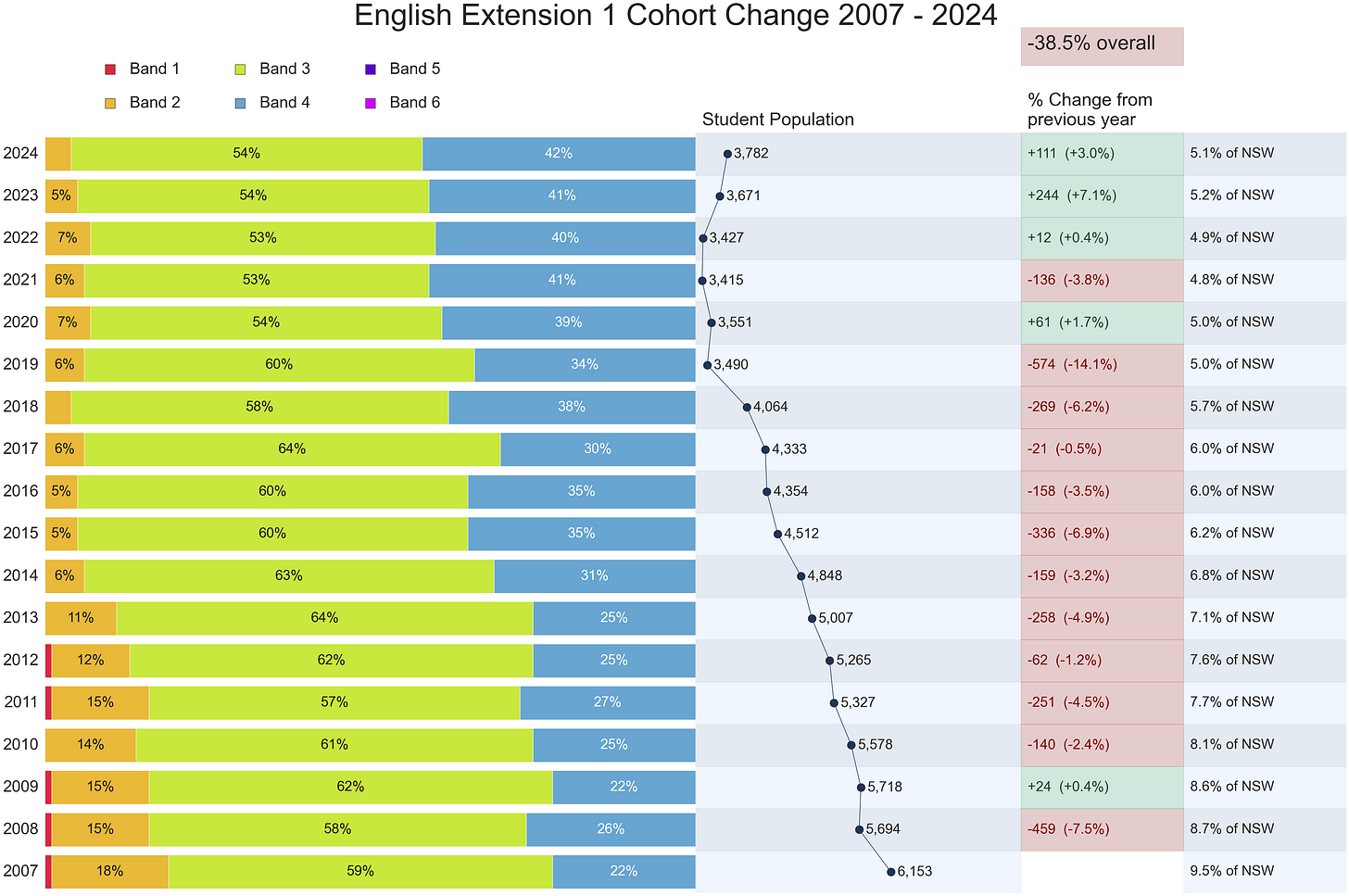
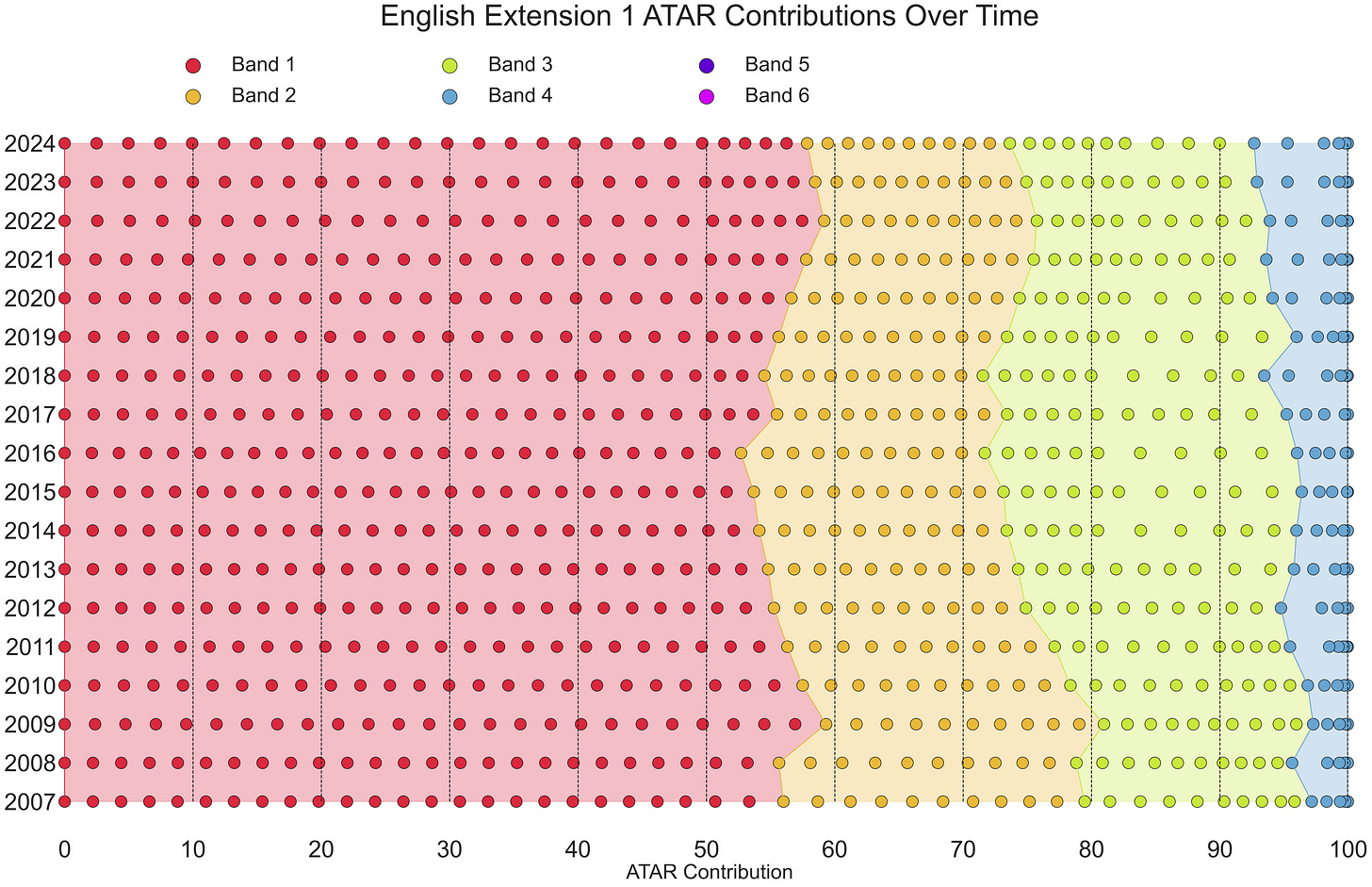
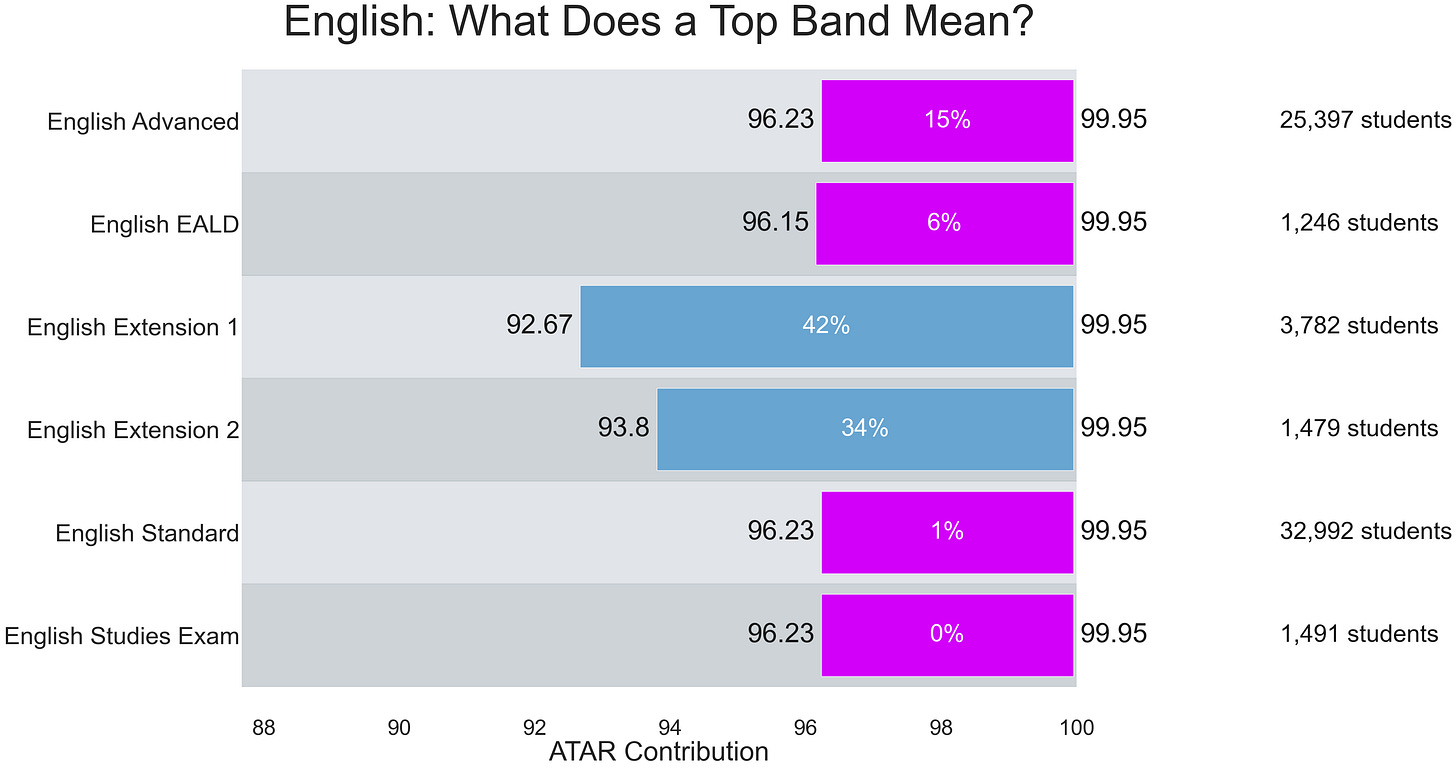
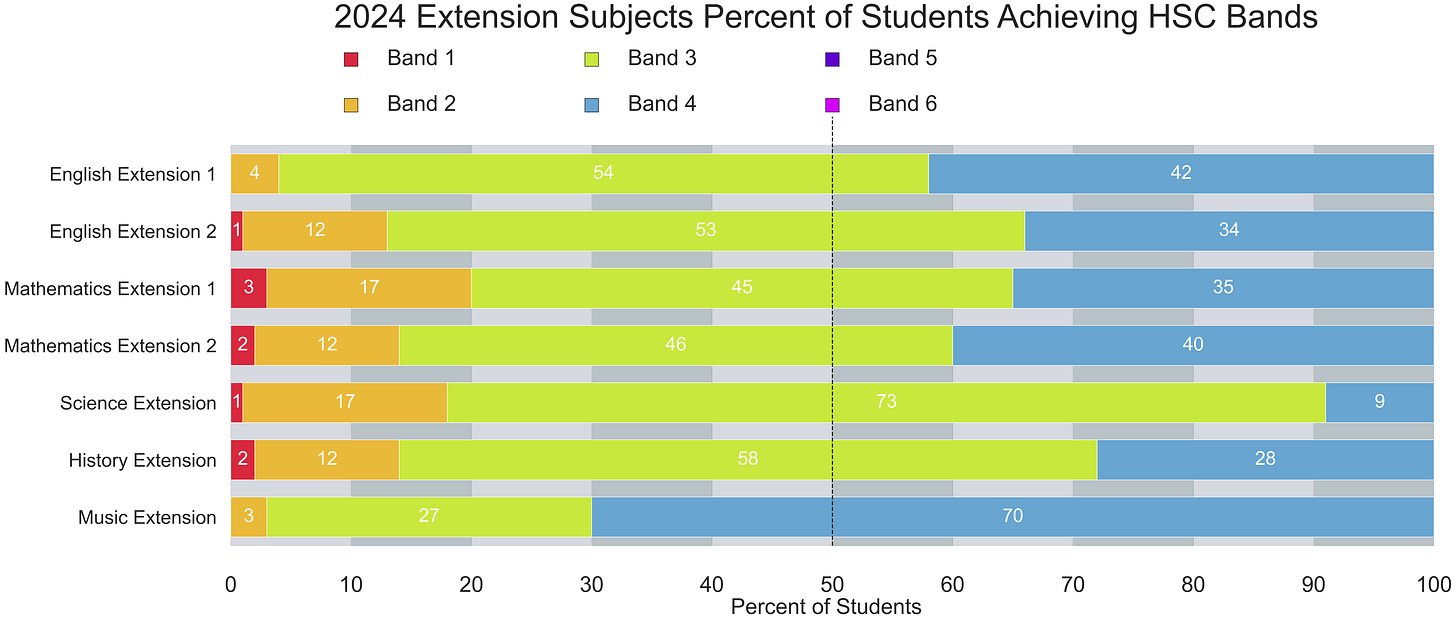
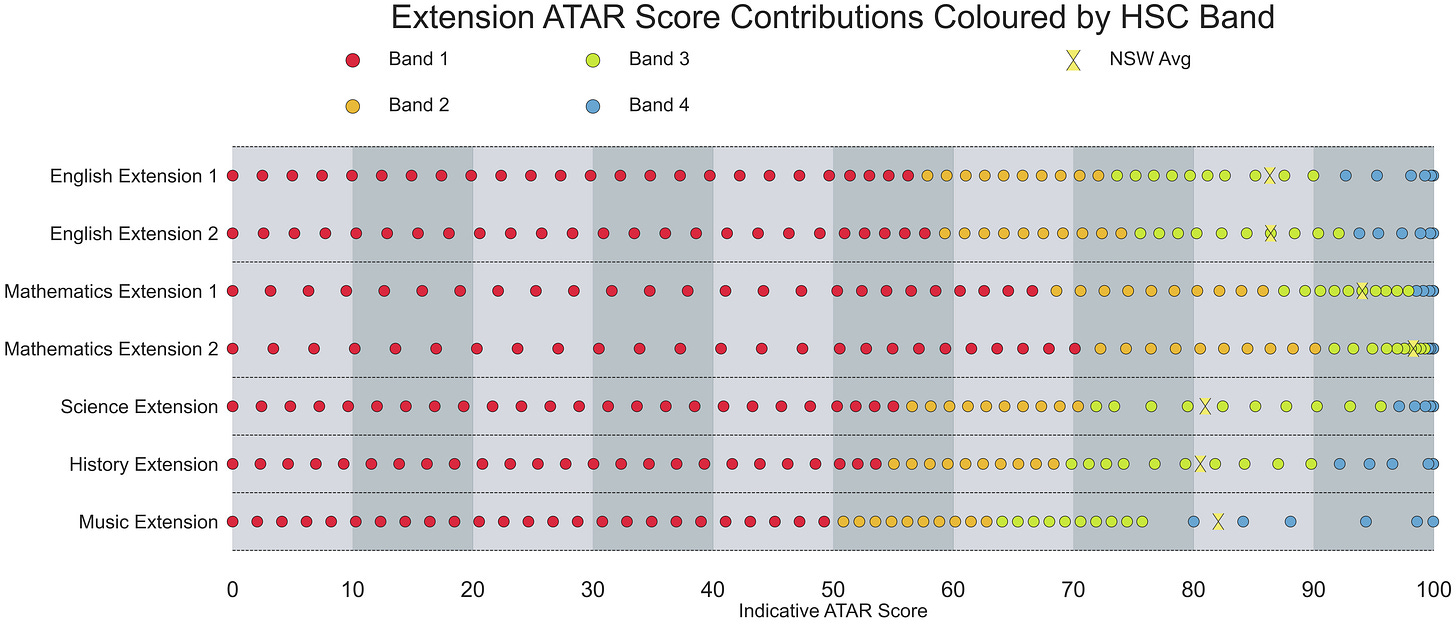
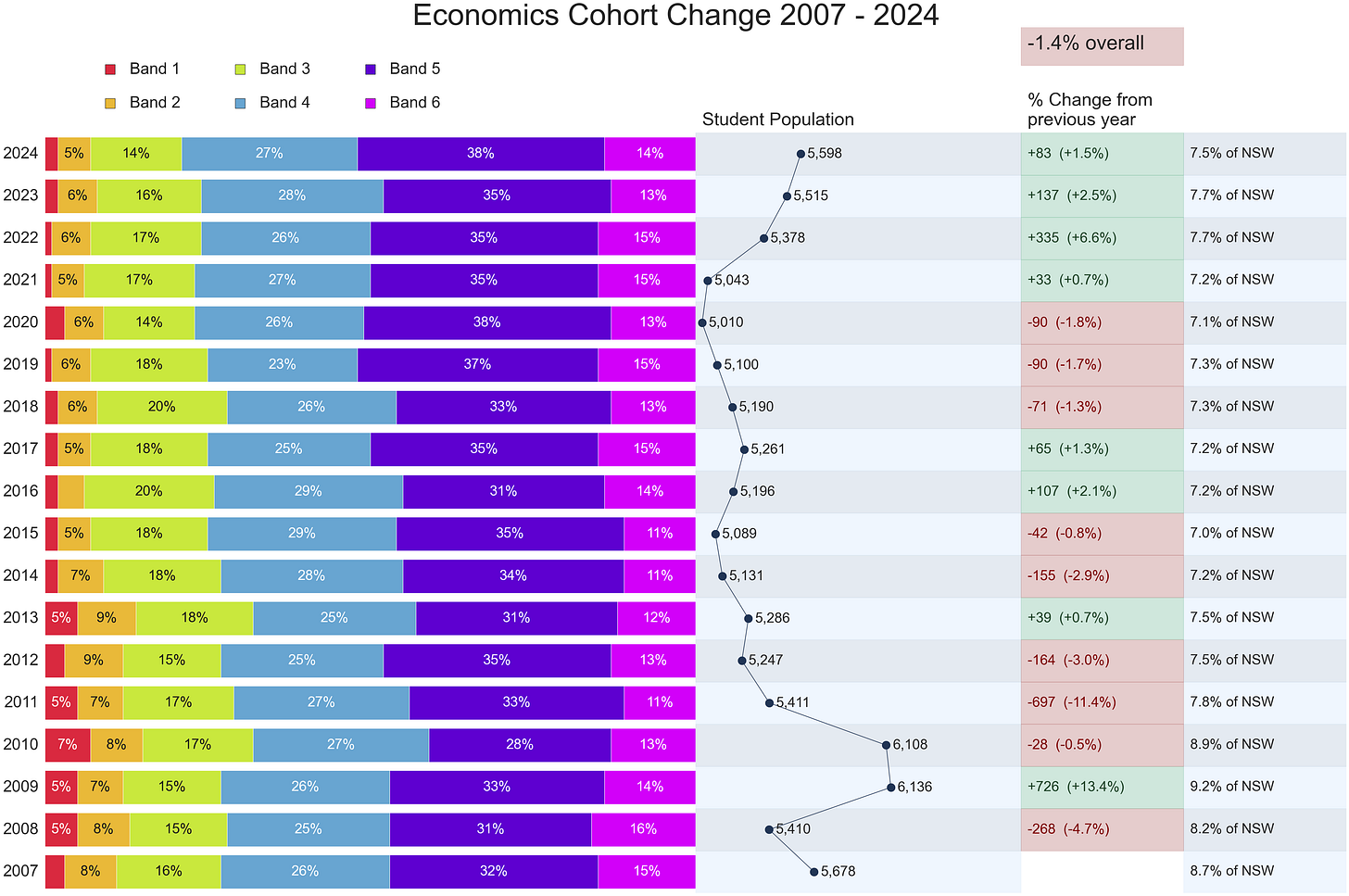
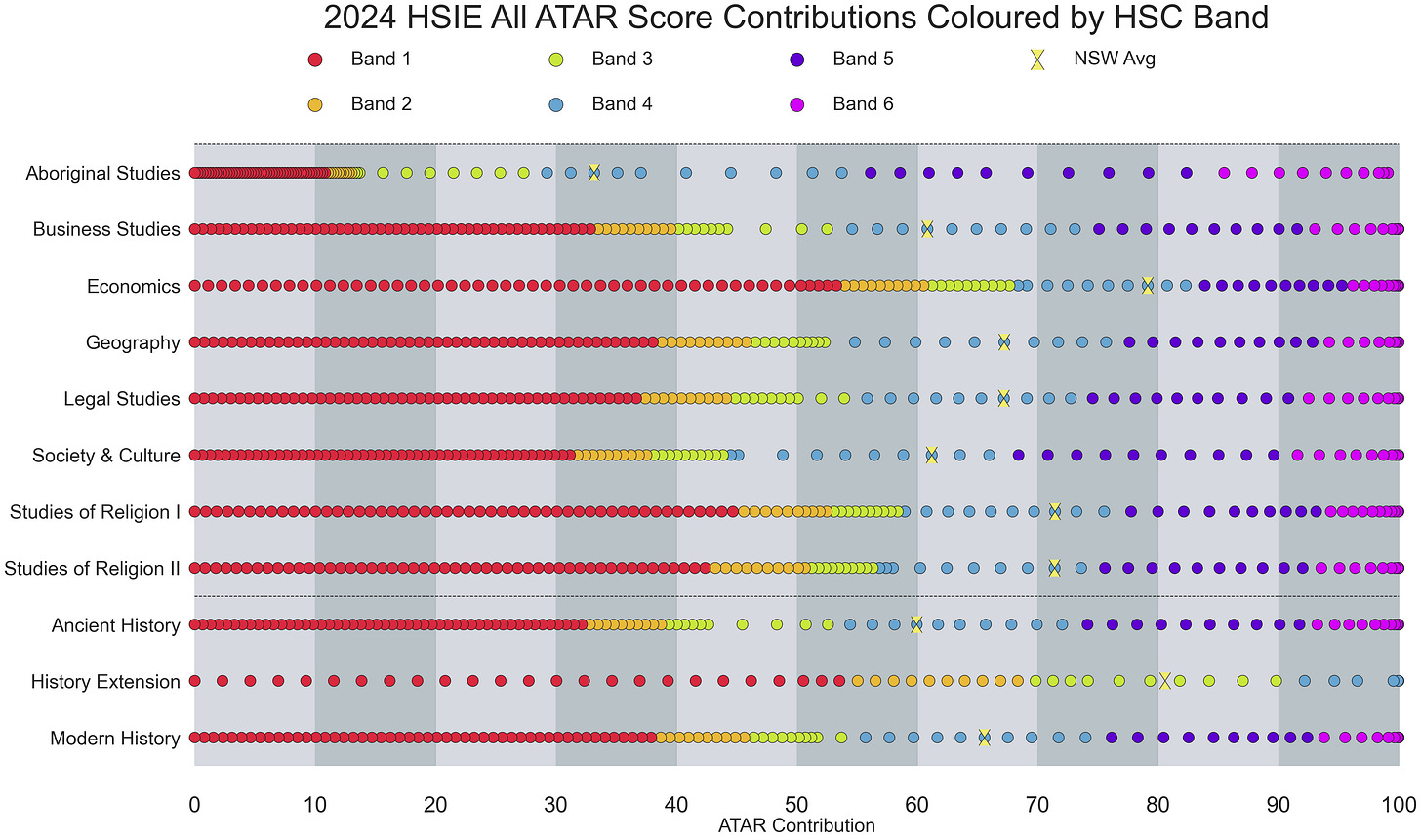
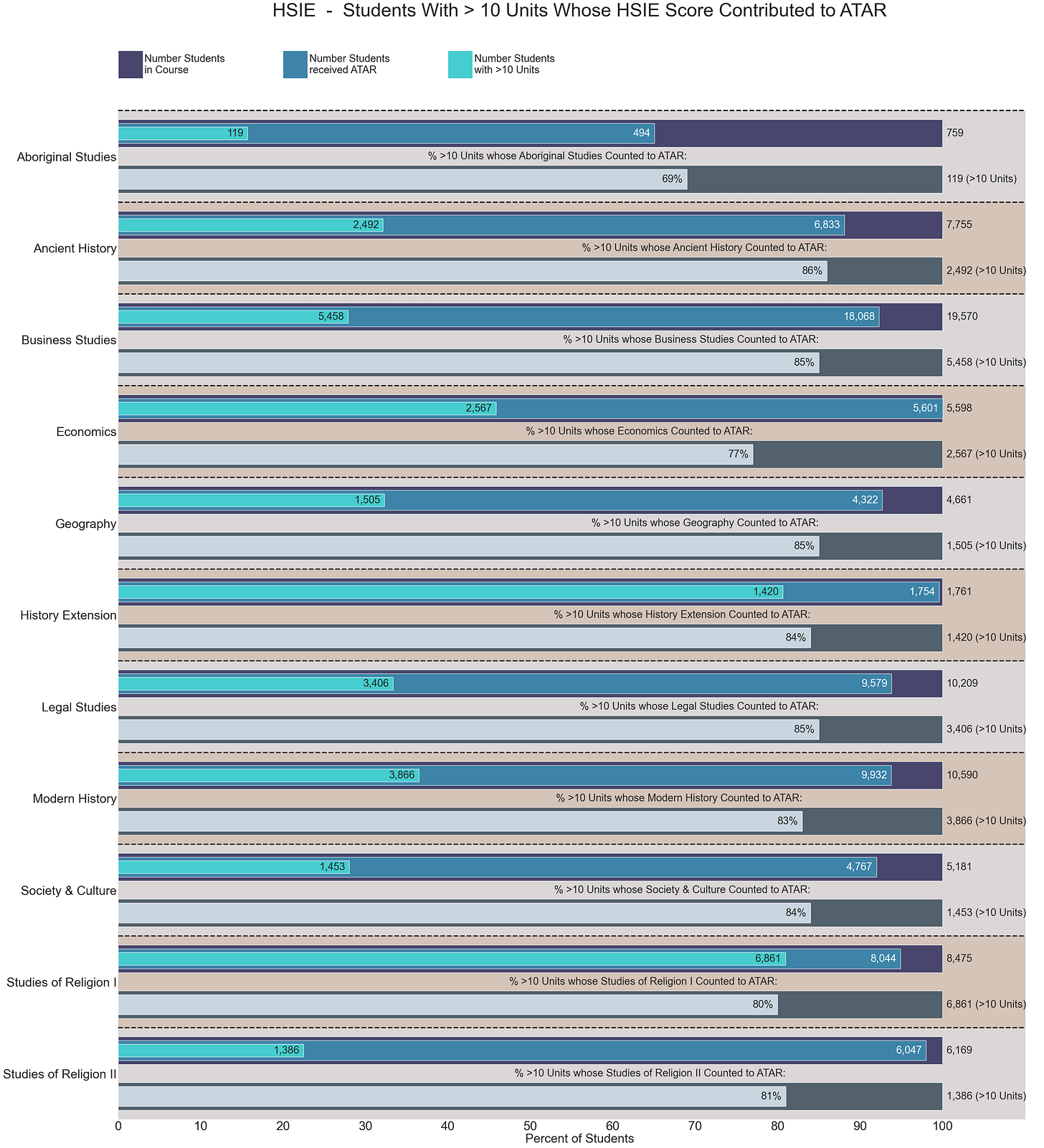
'little knowledge is dangerous' applies well here. This is a great article and a very potent thought. I have been working in the ACT system, that is quite different to HSC. The lack of understanding and the abundance of inaccurate interpretation of scaling is phenomenal. Thanks for your insight.